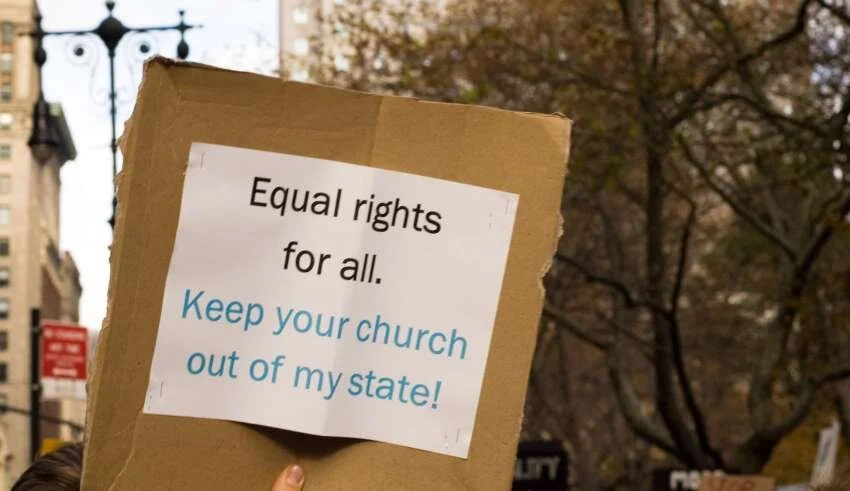OPINION: A postmodern performance — Religious Freedom Day
Hannah Fleming, a freshman studying political science, argues that President Donald Trump is not honoring the separation of church and state established by the founding fathers.
Please note that these views and opinions do not reflect those of The New Political.
President Donald Trump commemorated Religious Freedom Day on Jan. 16 as he vowed to protect the act of prayer in public schools, as well as to send federal funding to religious organizations. By vowing this, Trump disregarded the separation of church and state that the founding fathers recognized when they did not allow religion to “diminish, enlarge or affect their civil capacities.”
There are a few problems with Trump’s new proposal. Although the First Amendment guarantees religious freedom, without the separation of church and state religious conservatives may block laws that would ensure LGBTQ protection or safe access to birth control and abortions. For good reason, the majority of Americans feel that religion needs to stay out of politics.
Since 88% of our members of Congress identify as Christian, binding church and state together would result in gross misrepresentation of other Americans’ views within the legislative branch. Trump claims to have “been committed to protecting religious liberty” for all since taking office over three years ago, seemingly forgetting to take responsibility for the “Muslim ban” that barred Syrians, Iranians and citizens from five other countries from seeking refuge in America.
He also told Jewish Republicans that he did not want their money during the Republican Jewish Coalition’s candidates forum, invoking anti-semitic stereotypes. For this reason, it is evident that he has not taken the proper actions to protect religious freedom on the homefront and abroad.
This type of slippage is common in an age of postmodernism, in which leaders are not held accountable for prior actions and statements. Rather than valuing Trump’s true character, supporters value his performance as someone who merely claims to take into account their best interest.
After taking into account Trump’s history with religious minorities, it is important to consider whether students of all religions will be protected equally under his new prayer protection policy. More than likely, special accommodations will not be made for the students whose religion, for example, requires them to pray at specific times throughout the day. Expecting educators to coordinate class time activities for a variety of faiths while also following the mandated curriculum will create unneeded stress.
With Christianity serving as the prominent religion in this country, young people of a different faith — or faithless — may feel uncomfortable and left out during group prayer sessions at public schools. This could lead to greater discrimination, bullying and peer pressure to assimilate with certain beliefs, ultimately taking away from the primary goal of school — learning.
Trump’s plan to deeper incorporate religion into our political culture will have detrimental effects on American youth. Religion has its place in the home and in places of worship. Bringing it into schools will impact youth's sense of belonging amongst peers, ultimately hindering their rights to an agenda-free education.

